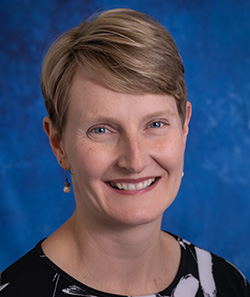

Dania Kamp, MD
Family Physician
Gateway Family Health Clinic
1) What is being an advocate so important to you?
I love my job as a family physician with longitudinal relationships with patients for 20 years. But our health care “system” is a mess, and advocacy is my way of trying to make positive changes that affect my practice, our profession and provide better care for patients.
The things that I don’t like about my job, that frustrate me and my patients, can and should be fixed. I can’t do that by myself in the exam room. I believe we need to work within our various systems, at local, state and national levels to bring about changes to healthcare.
2) What health-care related issue(s) have you advocated for over the past year?
I just returned from the American Academy of Family Physicians Congress of Delegates, the annual meeting where we help set policy for the AAFP. We addressed a variety of issues from payment reform, reducing Medicare cuts, decreasing administrative burdens (such as prior authorizations), and protecting patient access to care including reproductive health care and treatment for addiction. Rural health care continues to be a focus of mine; I’m often wearing my (thermal, Viking-themed) rural doc hat when involved in discussions of health care policy.
At the state level, the MMA continues to be a strong voice of medicine in MN. I am proud to be a MMA Board member and work with our board on issues that affect so many of us – administrative burdens, prior authorizations, physician well-being, access to care for all Minnesotans.
3) What advice would you offer to others who are interested in advocacy?
Get involved, and at the levels that work for you! There is no one right way to advocate, and we all have only so much “band width”. As physicians, we are leaders in our communities. Be active in local organizations or civic groups. Participate in committees within your organization/employer. Stay engaged in your state medical society and professional society. Together, we amplify our voice when we work through these organizations. Log into the Pulse and provide feedback and your unique perspective. Get to know your legislators and be available to converse with them and inform them of key issues. Attend Physicians’ Day at the Capitol. Donate to MEDPAC. Mentor med students and residents, which fosters an understanding of their unique concerns, and helps promote the next generation of health care advocates.
